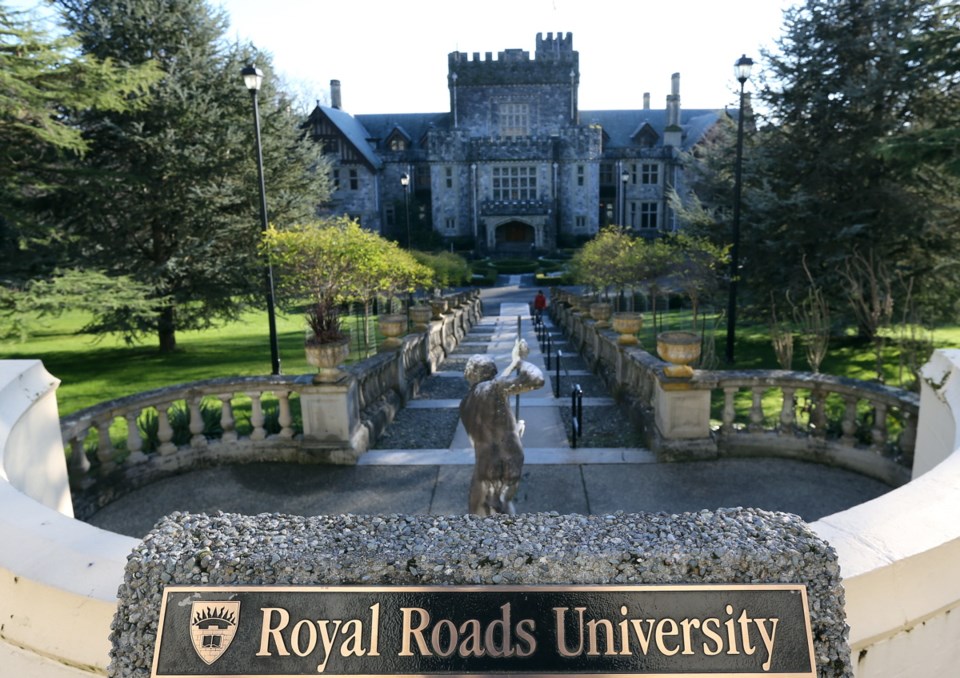The post-secondary system is challenged. Challenged, as are other sectors, on many fronts: having to do more with less, challenged with the quest for efficiencies and with the complex issues facing society.
Another challenge we face is changing a longstanding perception — that a university education is elitist, that it’s a finishing school full of secret handshakes and robes that operate under the traditions of the past. That it has lost touch with the reality of today.
That old story is simply not true.
After eight years as president of Royal Roads, I find myself the longest-serving president among B.C.’s six research universities, and while it’s not perfect, I have personally witnessed the system change and adapt for our times.
Education is the great social equalizer and an investment not only in the individual, but in society as well. Studies show education provides greater mobility, increases pay over a lifetime, improves health and promotes greater social engagement and a positive impact on self-worth.
Students, especially those who might be the first in their family to attend post-secondary institutions, know this. We see this understanding increasingly reflected in the makeup of today’s student body.
Wander any campus this fall and you will find a large and emerging non-traditional cohort of students that includes adult “lifelong” learners, mid-career professionals, international students, indigenous students and, increasingly, online (blended learning) students.
These learners are far more informed and savvy. They come with their own agendas and expectations, different from traditional university learners. They are looking for relevant, focused learning opportunities, reflecting their own personal and professional expectations. They aren’t simply empty vessels that need filling up, as the traditional student stereotype dictates.
Today’s students are active partners in their education. Rather than a “sage on the stage,” they are looking for and receiving educational guides, content curators, coaches and practitioners they can work with and co-learn from.
Increasingly, students view a postsecondary education less as a rite of passage and more as a way to help them become more effective, personally and professionally, in their career choices.
Post-secondary institutions are responding by creating programs and content that align the skills students need for jobs that are in demand now and forecasted to be in the coming years, as outlined in the province’s B.C. Skills for Jobs Blueprint.
Universities are also incorporating service learning and work-integrated learning with live clients to bring real-life application of a student’s education to the workplace.
And there are other adaptations on the horizon: more professional certifications, licensing programs, degree specializations and customized, shorter and focused offerings, such as micro-credentialed programs that are responsive to sector and student demand. When put together with others, they build to a non-traditional credential recognized by the university and valued by industry.
Students, especially mid-career professionals, also have busy lives and want an education that more easily fits within their schedules. Blended programs — education that combines intensive face-to-face class experience with online classes, the kind Royal Roads pioneered in Canada and continues to evolve — are one way students can continue working while receiving an education.
“Flipped” classrooms, where lectures are recorded and viewed online in advance of going to class, where extensive discussions and activities take place, are another adaptation.
But critics will say the system is not changing fast enough. I would agree — that is an ongoing challenge. Some are even reluctant to change. But we only need to look back at how far we’ve come to know we are responding well to the challenges, with an eye on long-term and positive gains for students.
Gone are the hallowed halls and ivy — they are an ancient fable. The reality is that most universities, even those with actual castles, are adapting to the demands of today’s postsecondary student and societal needs. We just need to do a better job of telling that story.
Allan Cahoon is president and vice-chancellor of Royal Roads University.



